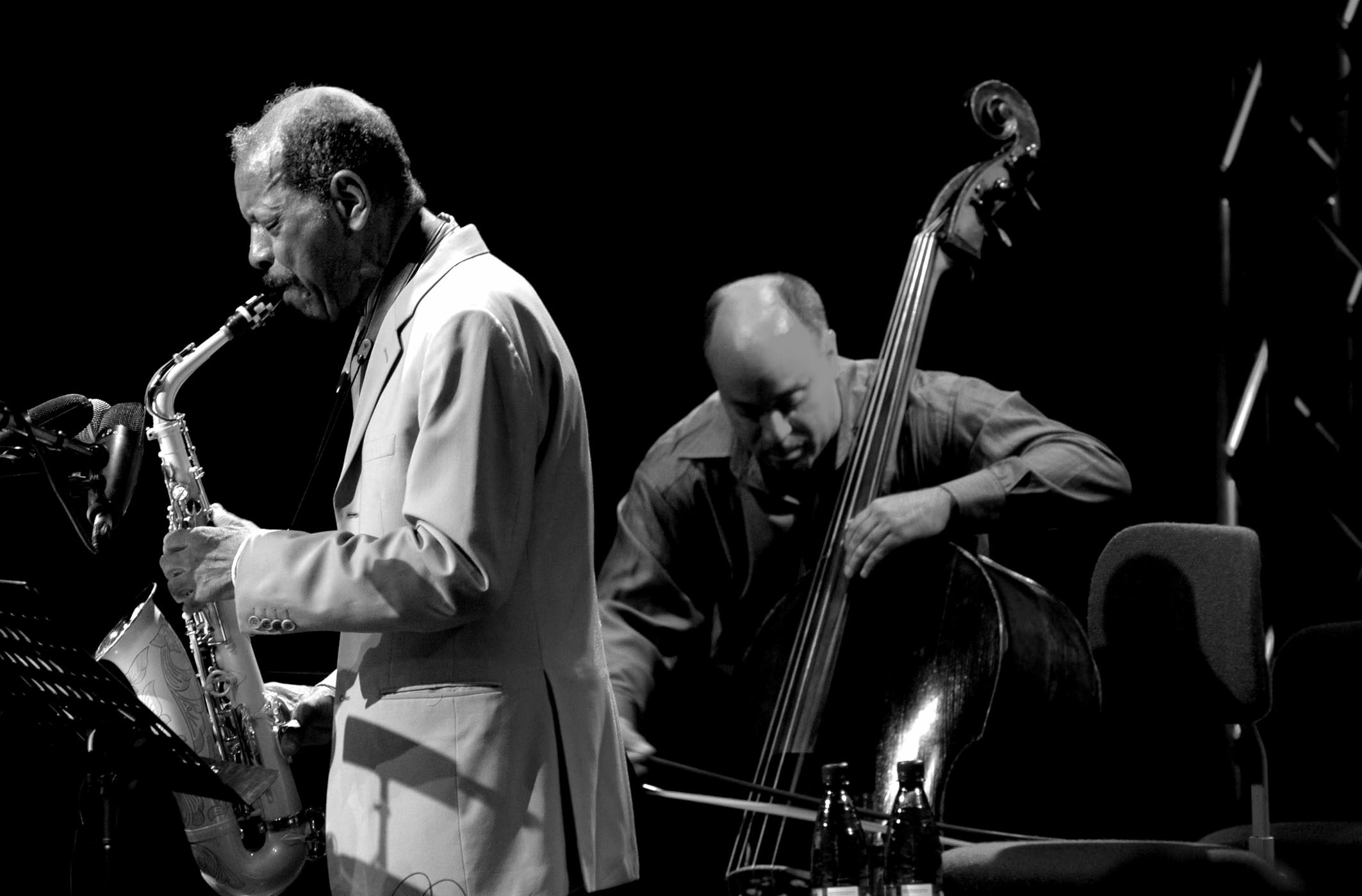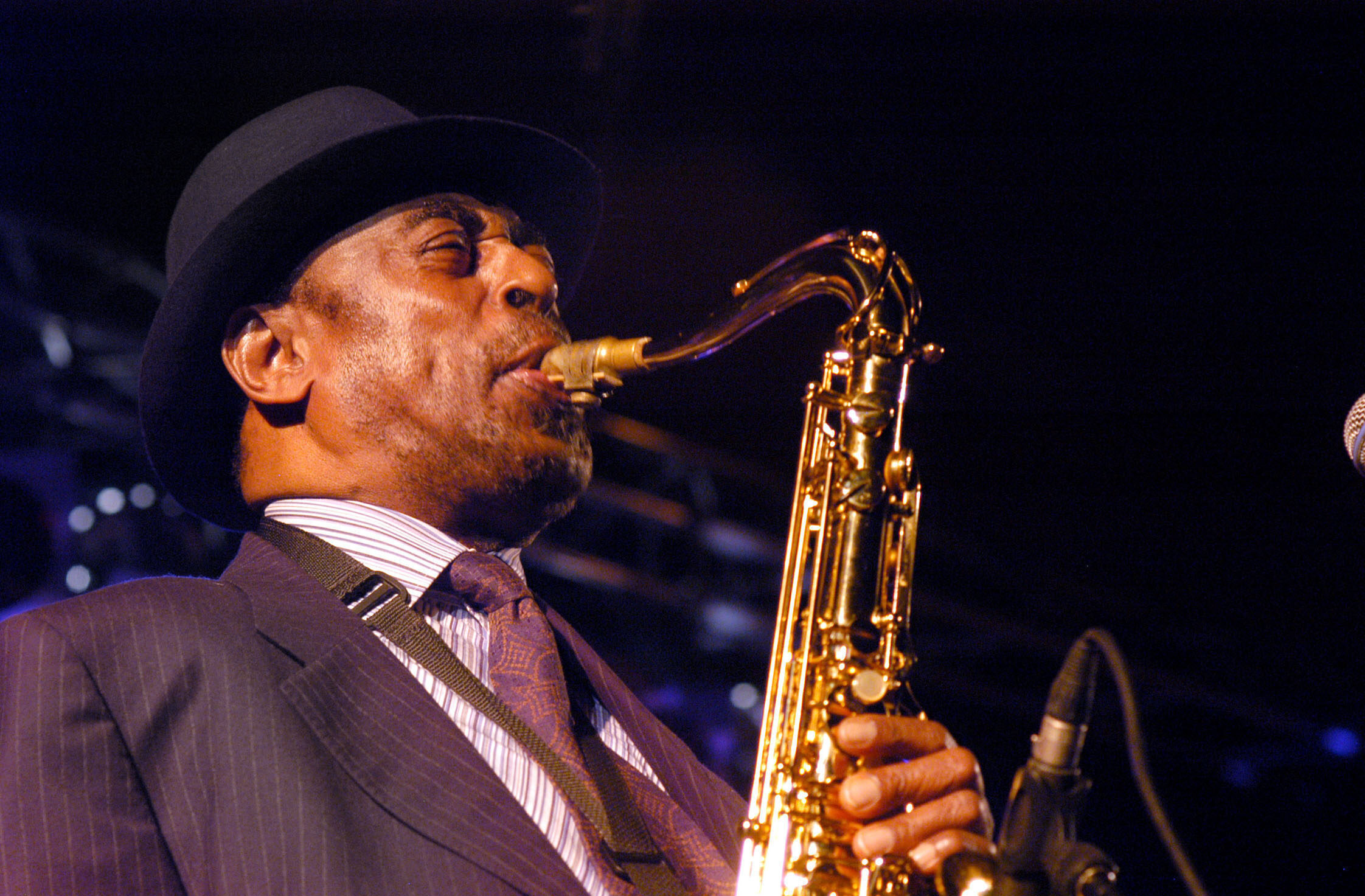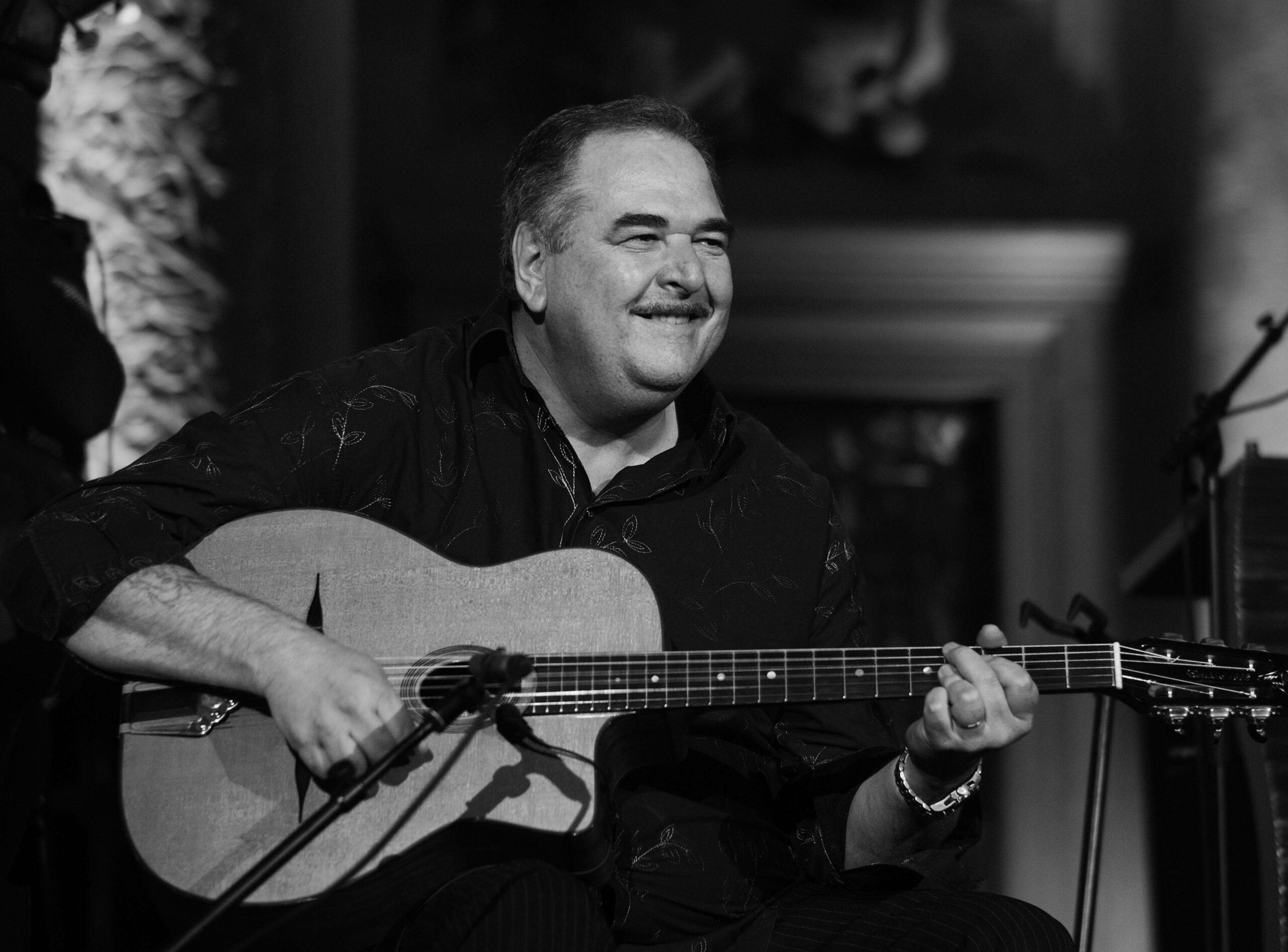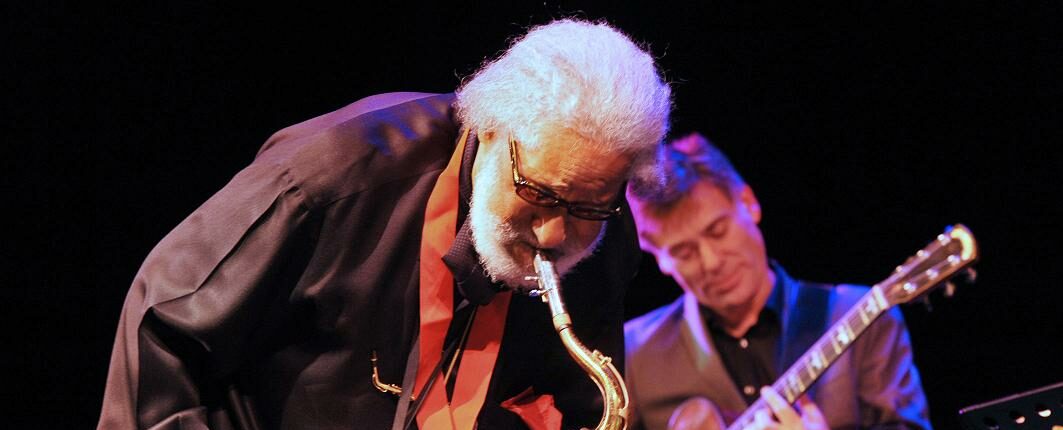Louis Sclavis is a welcome guest at Enjoy Jazz. A prominent place in the history of European jazz is assured for him anyway. 40 years ago, Sclavis was one of those musicians who transferred Bartók's idea of a "folklore lmaginaire" to jazz. Soon, however, he distanced himself from this approach and found his own style, combined with one of the most beautiful group sounds of contemporary jazz. The following conversation we had in 2014.
On your new album, you devote yourself to a topic that is once again of the highest political topicality: emigration. Do you also see your album as a political statement?
LS: No, not in this narrow sense. Emigration movements run through the entire history of mankind and are therefore also, or perhaps even primarily, a cultural phenomenon. But in the end, that's the listener's decision, whether he or she sees the theme in this music culturally or politically or even in its daily political drama and tragedy. I myself, by the way, did not have to make this decision at all in the process of creating the album. For me, the theme is an abstract one. Just take a title like "L'Homme Sud", the man from the South, you can see the Third World theme in it or, far from geography or politics, understand the South abstractly as a kind of place of longing.
You have played with very many musicians who have left their home countries. Does this give you a different relationship to the subject of emigration?
LS: I don't play with a musician because he comes from a certain country, but because I find it interesting how or what he plays, and because I can well imagine that something new will result for me from it. I would therefore understand the concept of emigration more broadly and also in the sense of movement, change and new paths. It's more about movement than about roots or the loss of roots. I am not a friend of talking about roots. It has become a real buzzword. Someone constantly asks you about roots. But I am not a tree! If I were a tree, I would need roots - as a human being, I need legs.
Does that mean that origin is overrated as a source of inspiration in music?
LS: Inspiration is basically not a conceptual question for me. The music comes from me. I've been composing for over 40 years now. And never have I composed something and then thought about what the ensemble might look like that would then play that music. I always make a selection of musicians first, and only then do I start writing. That's how it was this time, too. I decided to add a percussionist, Keyvan Chemirani, and then began to make the pieces much more percussive and dance-like than before with the Atlas Trio. So you could say the band is the main source of inspiration. If I don't have a band, I don't have music. I always need the human being first.
That surprises me. Your music sounds somehow independent to me.
LS: That can be deceptive, because the band is always already part of the composition. So you can say I compose the band first, then the music, but both are basically one a single process.
You have pushed the boundaries of your instrument. Not only as a virtuoso, which you unquestionably are, but as a very clever communicator and impulse generator. How important is technology still here?
LS: If you take the current album, you will actually find very few really virtuoso passages on it. It's basically kept very simple. What I wanted to do this time was to write melodies. I have the impression that melodies are a bit out of fashion again right now. I also called the album "Silk And Salt Melodies" because you will find melodies everywhere on it - tonal or atonal, everything is melody here.
Even your more abstract works have this strong melodic aspect. I'm thinking of your collaborations with free jazz musicians like Peter Brötzmann.
LS: When I decide on a project, I like to put all the facets in it that are important to me - melodic and very free parts, for example. I just like to mix things up. But again, the band defines the boundaries in terms of possibilities as well as limits. The band tells me where I can go.
The mix that inevitably results from this never seems arbitrary in your case, but unique.
LS: I've been writing for band projects, film, theater or ballet for decades. After this long time, you are simply yourself. Little by little, your own voice comes to the fore so strongly that at some point it is immovably there. Whatever you write, you write from within yourself. That is recognizability. Everything sounds like me.
More than forty years ago you joined the ARFI musicians' collective in Lyon, which transferred Bartök's ideas of a "folklore lmaginaire" to jazz. I think that until today there is at least a folkloric aspect in your melodies.
LS: Not really, no. Perhaps one can sometimes recognize references to traditional music from certain regions of the earth in my compositions, maybe. But when I compose, this aspect doesn't play a role for me. So it is not a source of inspiration. I really have nothing to do with "folklore lmaginaire." This is a very old relationship, broken already in the 70s, without meaning. The "Folklore lmaginaire" is not really about music either, it was a more philosophical concept that assumed that no one has the same cultural roots and therefore it doesn't make sense to look for individual roots, but to create new, collective roots. My own music is very far from that. I'm not concerned with traditions, whether new or old. I make popular music in the sense that anyone who listens to it can hear their own song in it. You don't need prefabricated keys to open a door that everyone can open much faster with their own key.
In Berlin, you will participate in a major Eric Dolphy tribute to mark the 50th anniversary of his death.
LS: A fantastic musician. I don't think of him so much as a clarinetist or flutist, but as a musician who brought something completely new to jazz, especially in his collaboration with Mingus. Personally, I have to say that at no time did I try to sound like Eric Dolphy. That would not have been possible at all. When I started started playing the bass clarinet in 1972, I had never heard of Dolphy. I didn't know the instrument or Dolphy at that time. I thought a bass clarinet was just like a clarinet, only an octave lower. And because I imagined that it could sound great, I went to work in a factory for three months so that I could afford the instrument. to be able to afford the instrument. I still own it today, by the way. Then, free of role models, I simply played what was inside me on the instrument. Don't get me wrong: Eric Dolphy is fantastic, but I came into contact with him so late that he couldn't really influence me anymore.
What does the clarinet actually mean to you as an instrument?
LS: Colors. Especially colors. Finding beautiful timbres and mixing them like a painter, that's what interests me. The clarinet, after all, is not such a strong instrument with such a powerful history as, say, the piano or the saxophone or the trumpet. That brings with it a greater freedom. The instrument is very flexible and has an infinite number of characters. And that's what I've always wanted. Of course, sometimes I would like to play another instrument, especially when I compose something for the band and the clarinet just doesn't fit. Then I just don't play not play along. Basically, I have found a good balance between playing and composing, because I am not a conceptual composer. I am a composing clarinetist. I have to play. I could never just be a composer. I just have to be able to blow into the instrument and move my fingers. This physical process is incredibly important to me. Although sometimes I curse it, too. I've been playing the clarinet for over 50 years now and still feel like a beginner again every time I practice, when I play scales and my mouth or fingers don't want to right away. It's a prison. But a self-imposed one. Because it's the only way I can really feel the connection to the music. It's not just a spiritual phenomenon. It's also a physical relationship you enter into, and sometimes a struggle.
A style-setting battle at best.
LS: Yes, indeed. For me, personal style is the perfect combination of spirituality, physicality and imagination, or the will to create something of one's own. And the strange thing about it is that you can't specifically bring about success, but rather it it happens step by step. The audience often recognizes this style long before you recognize it in yourself.
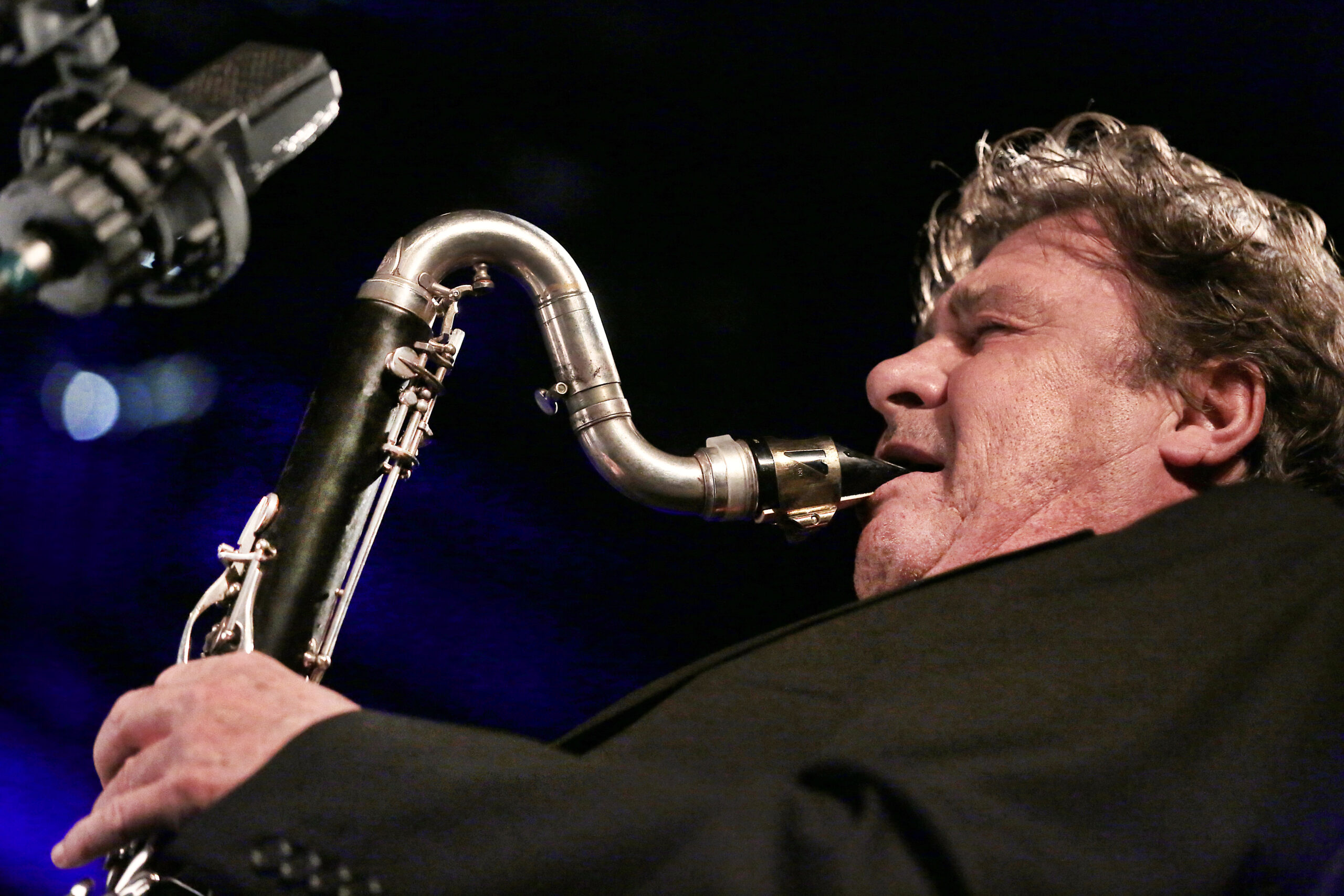
Date: July 10, 2023


